Best Preventive Dentistry in Milton-Freewater, OR
Preventive dentistry is the area of dentistry aimed to help people prevent oral disease and its further development. Preventive dentistry includes not just in-office dental care, but at-home treatments as well.
Some examples of at-home treatments include:
- Regular brushing– the American Dental Association (ADA) recommends brushing two times a day and directly after meals, when possible.
- Regular flossing– the ADA recommends flossing at least once a day.
- Rinsing with anti-bacterial mouth wash– recommended after each brushing
Proper brushing is essential in preventative dentistry. The proper way to brush your teeth is to use a soft nylon toothbrush with round-ended bristles. Next both the tooth surface and the gum line should be brushed by placing the brush at a 45-degree angle along the gum line and brushing gently in a rolling back-and-forth motion on the surface of the teeth. When brushing you should cover the inner surfaces of your teeth and then tilt the brush in order to brush the front teeth. The ideal brushing technique also involves the brushing of the tongue. Brushing should last until all teeth a gum lines have been thoroughly brushed.
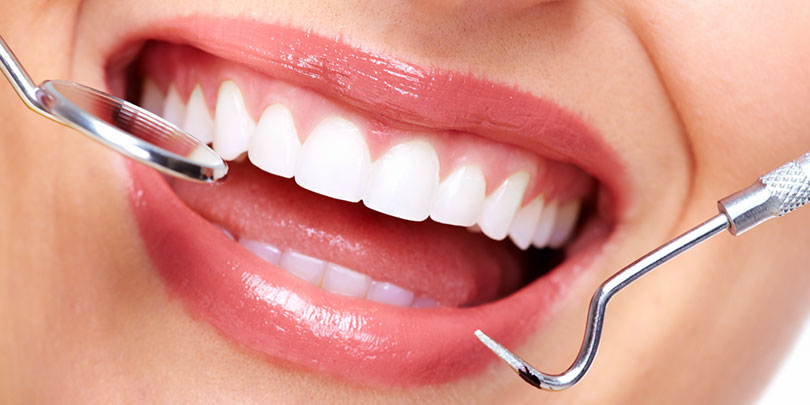
Maintaining regularly schedule dental cleanings and prevention is imperative to your oral health.
A dental cleaning, or also know as a “prophylaxis” is a dental procedure which is performed with the goal of reducing the risk of gum and tooth disease. Also known simply as a prophylaxis or prophy, this procedure is recommended at intervals which can vary from six months to one year, depending on a patient’s history and individual health needs. It is performed by a dentist or licensed dental hygienist (RDH) who has received specialized training in tooth care.
During a dental cleaning, the hygienist performs both scaling and polishing. During the scaling process, tools are used to remove tartar, plaque, and stains from the teeth, including below the gum line. The polishing process smooths the teeth to remove rough spots which might otherwise attract bacteria. Some dentists also offer tooth sealant services, which are designed to prevent decay of the teeth.
The most important part of a dental cleaning involves cleaning below the gum line. People who floss and brush their teeth regularly can usually keep their teeth relatively healthy above the gums. Below the gums, however, it is difficult for tools like toothbrushes to reach, and dental calculus can build up. This exposes the patient to the risk of gum disease and dental decay.
Our Cleanings and Prevention services include the following offerings:
Dental Exams & X-rays

Full mouth X-Rays(FMX): A series of 18 x-rays. It’s usually done once every three to five years along with a comprehensive exam. The amount of radiation exposure from a full mouth series of x-rays is less than the amount a person receives in a single day from natural sources.
Panoramic X-Ray: An extra-oral x-ray taken to show all teeth and their supporting structures, such as the joint bone area.
Bite-wing X-Ray: A type of x-ray primarily used to check for cavities. It shows only the top portions of the teeth. Four bite-wing x-rays are usually done every year to check for new problems or cavities.
PA X-Ray: A type of x-ray used to show the whole tooth from top to root and the surrounding bone structure.
Exams:
Comprehensive New patient Exam: This exam is done at your first dental appointment.
Limited/Emergency Exam: This exam is done when you are seen for an emergency tooth ache. It involves looking at just the area that is bothering you and taking an x-ray of that area.
Periodic Exam: This exam is usually done every six months at your regular check up and cleaning appointments. It involves checking all your teeth and looking for changes.
Home Care
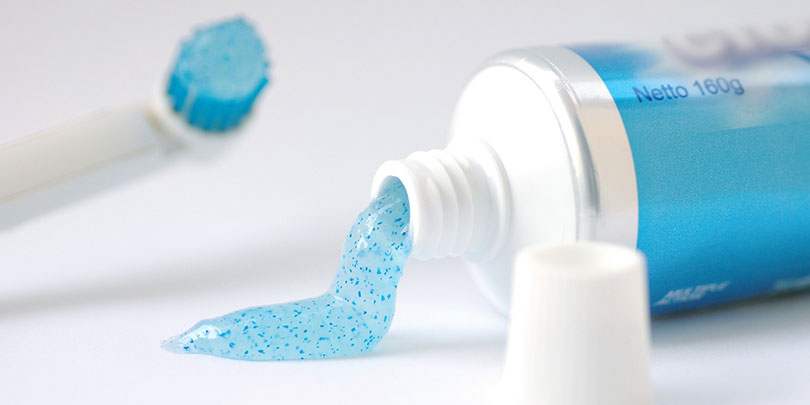
The goal of regular home care is to combat the buildup of plaque in and around your teeth and gums, and fight bad breath, tooth decay, and gum disease.
Here are a few simple ways that you can prevent these problems:
- Brushing your teeth twice daily with fluoride toothpaste; once in the morning and before bedtime.
- Flossing your teeth once daily, preferably before bedtime
- Using a mouthwash can help reduce plaque and can remove remaining food particles that brushing and flossing missed.
- Eating a balanced diet; limiting candy, sweets, sugary drinks and fruit juice.
Taking care of your teeth at home can help you maintain your dental health and prevent periodontal, or gum, disease from developing.
Brushing & Flossing
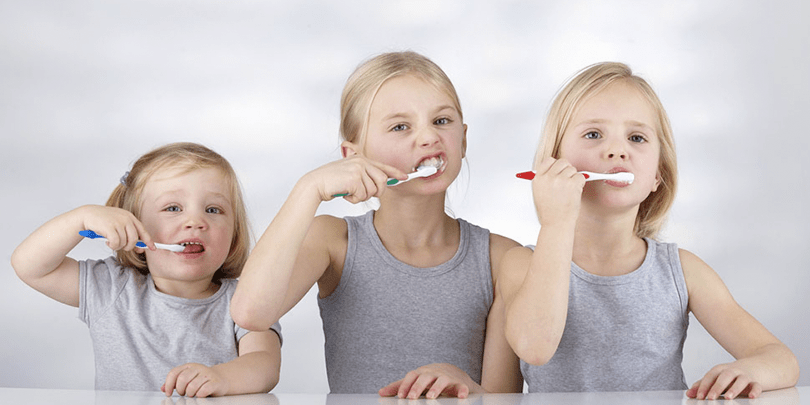
Use a toothbrush with soft bristles and a small strip of fluoride toothpaste. When you brush your teeth, move the brush in small circular motions to reach food particles that may be under your gum line. Hold the toothbrush at an angle and brush slowly and carefully, covering all areas between teeth and the surface of each tooth. It will take you several minutes to thoroughly brush your teeth. Brush up on the lower teeth, down on the upper teeth and the outside, inside and chewing surface of all of your front and back teeth. Brush your tongue and the roof of your mouth before you rinse.
Brush your teeth four times daily to avoid the accumulation of food particles and plaque:
- In the morning after breakfast
- After lunch or right after school
- After dinner
- At bedtime
As soon as the bristles start to wear down or fray, replace your toothbrush with a new one. Do not swallow any toothpaste; rinse your mouth thoroughly with water after you finish brushing. It is important to carefully floss and brush daily for optimal oral hygiene.
Flossing: For areas between the teeth that a toothbrush can’t reach, dental floss is used to remove food particles and plaque. Dental floss is a thin thread of waxed nylon that is used to reach below the gum line and clean between teeth. It is very important to floss between your teeth every day.
Pull a small length of floss from the dispenser. Wrap the ends of the floss tightly around your middle fingers. Guide the floss between all teeth to the gum line, pulling out any food particles or plaque. Unwrap clean floss from around your fingers as you go, so that you have used the floss from beginning to end when you finish. Floss behind all of your back teeth.
Floss at night to make sure your teeth are squeaky clean before you go to bed. When you first begin flossing, your gums may bleed a little. If the bleeding does not go away after the first few times, let a staff member know at your next appointment.
Dental Sealants
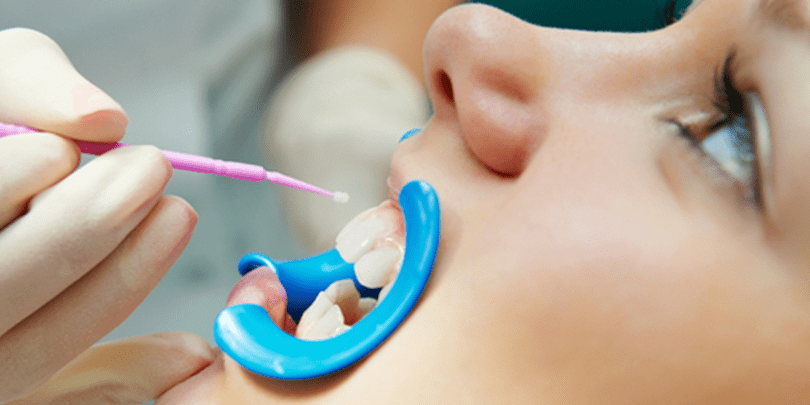
A sealant is a clear coating that is painted into the grooves on the chewing surfaces of a tooth and prevents decay from forming on that surface. It is usually done for children. It is put on molars and pre-molars that have never had a cavity, to protect the tooth from decay.
When applied to the chewing surfaces of molars, sealants act as a barrier between the tooth and harmful bacteria. They are most effective when applied to decay-susceptible surfaces as soon as the teeth come in. With sealants, there is no drilling and no discomfort. Either Dr. Saager or one of our registered dental hygienist can apply sealants in less time than having a tooth filled.
Stay up to date on your dental cleanings and prevention. Conveniently located near Walla Walla, WA, call our Milton-Freewater, OR dental office today for an appointment. We’re gladly accepting new patients!
A Child’s First Dental Visit
A child’s first dental visit should be scheduled around his or her first birthday. The most important part of the visit is getting to know and becoming comfortable with the doctor and staff.
A pleasant, comfortable first visit builds trust and helps put the child at ease during future dental visits. If possible, allow the child to sit in a parent’s lap in the exam room. Children should be encouraged to discuss any fears or anxiety they feel.
All children, under the age of 3 years old, get a yearly exam with a dental hygienist at NO CHARGE!!
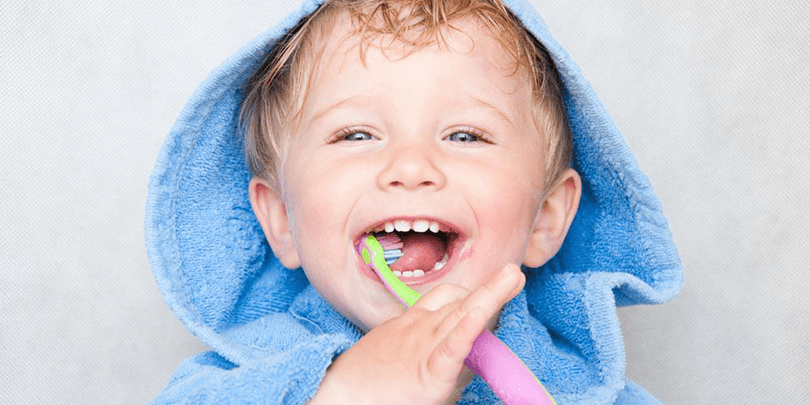
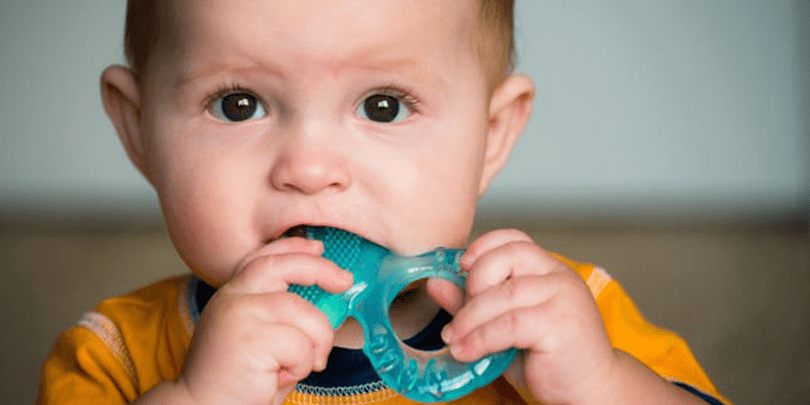
Teething
Normally the first tooth erupts between 6 to 12 months. Gums are sore, tender and sometimes irritable until the age of 3. Rubbing sore gums, gently with a clean finger, the back of a cold spoon or a cold, wet cloth helps soothe the gums. Teething rings work well, but avoid teething biscuits—they contain sugar that is not good for baby teeth.
While your baby is teething, it is important to monitor the teeth for signs of baby bottle decay. Examine the teeth, especially on the inside or the tongue side, every two weeks for dull spots (whiter than the tooth surface) or lines. A bottle containing anything other than water and left in an infant’s mouth while sleeping can cause decay. This happens because sugar in the liquid mixes with bacteria in dental plaque, forming acids that attack the tooth enamel. Each time a child drinks liquids containing sugar, acids attack the teeth for about 20 minutes. When awake, saliva carries away the liquid. During sleep, the saliva flow significantly decreases and liquids pool around the child’s teeth for long periods, covering the teeth in acids.
All children, under the age of 3 years old, get a yearly exam with a dental hygienist at NO CHARGE!!
Infant’s New Teeth
The primary, or “baby,” teeth play a crucial role in dental development. Without them, a child cannot chew food properly and has difficulty speaking clearly. Primary teeth are vital to development of the jaws and for guiding the permanent (secondary) teeth into place when they replace the primary teeth around age 6.
Since primary teeth guide the permanent teeth into place, infants with missing primary teeth or infants who prematurely lose primary teeth may require a space maintainer, a device used to hold the natural space open. Without a maintainer, the teeth can tilt toward the empty space and cause permanent teeth to come in crooked. Missing teeth should always be mentioned to your family dentist. The way your child cares for his/her primary teeth plays a critical role in how he/she treats the permanent teeth. Children and adults are equally susceptible to plaque and gum problems—hence, the need for regular care and dental checkups.
All children, under the age of 3 years old, get a yearly exam with a dental hygienist at NO CHARGE!!
Infant’s Tooth Eruption
A child’s teeth actually start forming before birth. As early as 4 months of age, the primary or “baby” teeth push through the gums—the lower central incisors are first, then the upper central incisors. The remainder of the 20 primary teeth typically erupt by age 3, but the place and order varies.
Permanent teeth begin eruption around age 6, starting with the first molars and lower central incisors. This process continues until around age 21. Adults have 28 secondary (permanent) teeth—32 including the third molars (wisdom teeth).
All children, under the age of 3 years old, get a yearly exam with a dental hygienist at NO CHARGE!!
Why are Primary Teeth Important
Primary teeth are important for several reasons. Foremost, good teeth allow a child to eat and maintain good nutrition. Healthy teeth allow for clear pronunciation and speech habits. The self-image that healthy teeth give a child is immeasurable. Primary teeth also guide eruption of the permanent teeth.
All children, under the age of 3 years old, get a yearly exam with a dental hygienist at NO CHARGE!!
A preventive treatment program including cleanings is also vital to your smile’s health. Contact our dental office today to schedule an appointment.